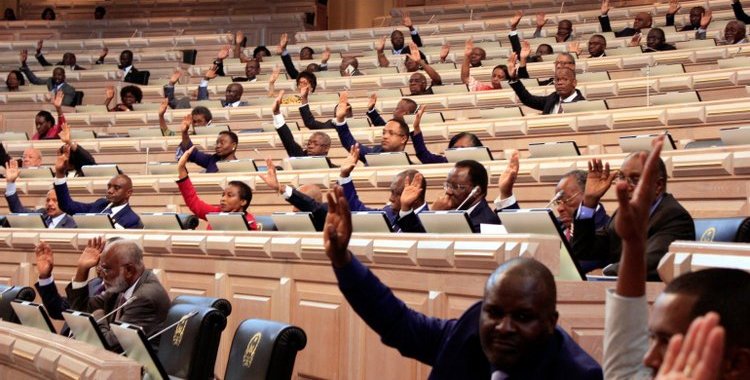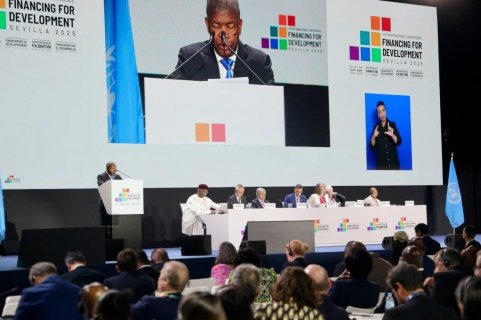The request by the parliamentary group of the National Union for Total Independence of Angola (UNITA), the largest opposition party, was presented this Thursday at the opening of the sixth ordinary plenary meeting of parliament.
UNITA, which wanted to see an amendment to the draft agenda with a discussion on the "systematic violation" of the Constitution, especially on the "unequal treatment" of political parties in the public press, says it is "constantly undermined" by Televisão Pública de Angola (TPA), by TV Zimbo, a body recovered and under state control, and partially by Rádio Nacional de Angola (RNA).
A request for a parliamentary hearing to the Minister of Telecommunications, Information Technology and Media, Manuel Homem, and to the chairmen of the boards of directors of TPA and TV Zimbo has already been sent to parliament by UNITA.
This Thursday, UNITA's request was rejected with 118 votes against by the Popular Movement for the Liberation of Angola (MPLA), 48 votes in favor and one abstention.
In statements to journalists, the president of UNITA's parliamentary group, Liberty Chiyaka, regretted the rejection of his proposal, reiterating that "TPA, TV Zimbo and in part RNA, have not been giving equal treatment to all political actors".
"One can clearly see a tendency to privilege, to favor the party that holds power [the MPLA] and as responsible people, representatives of citizens, who see their rights being violated, being trampled upon. We seek to propose to the National Assembly to debate with serenity, coolness, and above all with responsibility and critical patriotic sense so that this situation no longer continues," said Liberty Chiyaka.
"Unfortunately, the parliamentary majority has taken a position contrary to the wishes of the Angolans, but we want to believe that we will reschedule the debate and we will be able to return to the debate in the next plenary session, so we will do everything so that the issue is debated with due responsibility," he insisted.
According to the UNITA deputy, for a democratic and rule of law state "to be serious and respected" by all nations, the actions of all public agents must be "in accordance with the law.
"The law is clear and what is required of public agents is simply respect," he considered.
"The law is clear and what is required of public officials is simply respect," he considered.
The vote against UNITA's proposal was justified by MPLA deputy João Pinto, who said that the initiative of the 'black rooster' party was "unethical" in regimental terms, arguing that "it is not correct to have a debate on the surprise media".
"The debates should meet a rule, you can not intend a debate without bringing what are the issues of the debate, want to create political facts to divert attention from the discredit in which UNITA is inserted and the controversy about its leadership," he said in statements to journalists.
João Pinto understands that UNITA, with its initiative, "intends to create political facts" and, as always, he stressed, "they intend to create facts of the cat and the mouse, even because the freedom of the press also demands for the organs or the actors to be present".
"To doubt" the freedom of the press in the country, he stressed, "is ridiculous, when UNITA even has a radio that under the peace agreements has been used every day to instigate, insult people or try to whitewash history.
"How can they talk about inequality in the treatment of information if the opposition leader himself, the social networks, UNITA's radio every day campaigns to discredit, to demotivate people, it is impressive," João Pinto said.







